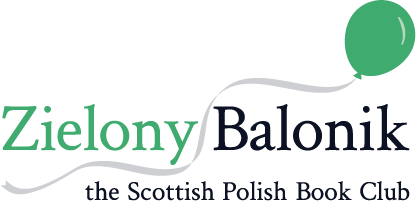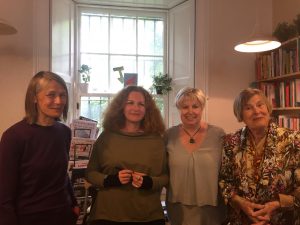After our last post about Robert McMillan meeting Jozef Hen, this post is about Basia McMillan meeting Maciej Hen. (Robert and Basia are married; Jozef and Maciej are father and son.)
Basia writes:
“Recently I attend the Polish National Library’s very well attended annual picnic in Warsaw. While there I spent some time talking woth two authors.
“Firstly Zyta Rudzka who has won a number of prestigious prizes for her work – including this year the Nike (comparable to the Booker) for her latest book. She informed me that one of her books, Slicznotka Doktora Josepha, has recently been translated into English by Antonia Lloyd Jones and will be published in the USA next year. Obviously, a possible book for us to read once it becomes available.
“I also talked to Maciej Hen – our second encounter as we had a long meeting with him and Grazyna last year.”




